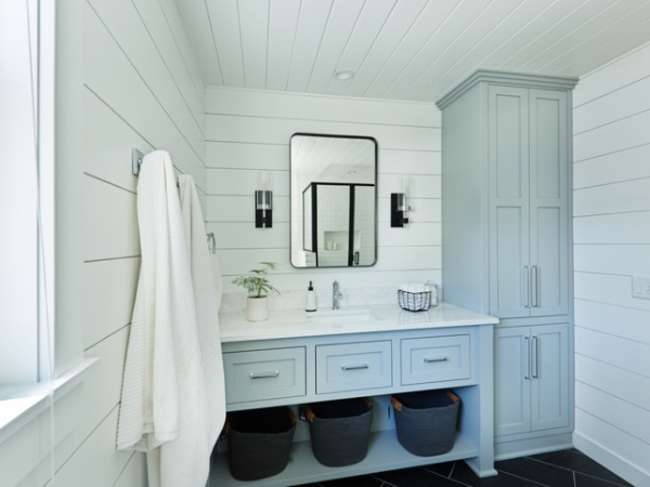We may earn revenue from the products available on this page and participate in affiliate programs. Learn More ›
Bathroom Storage Blunders
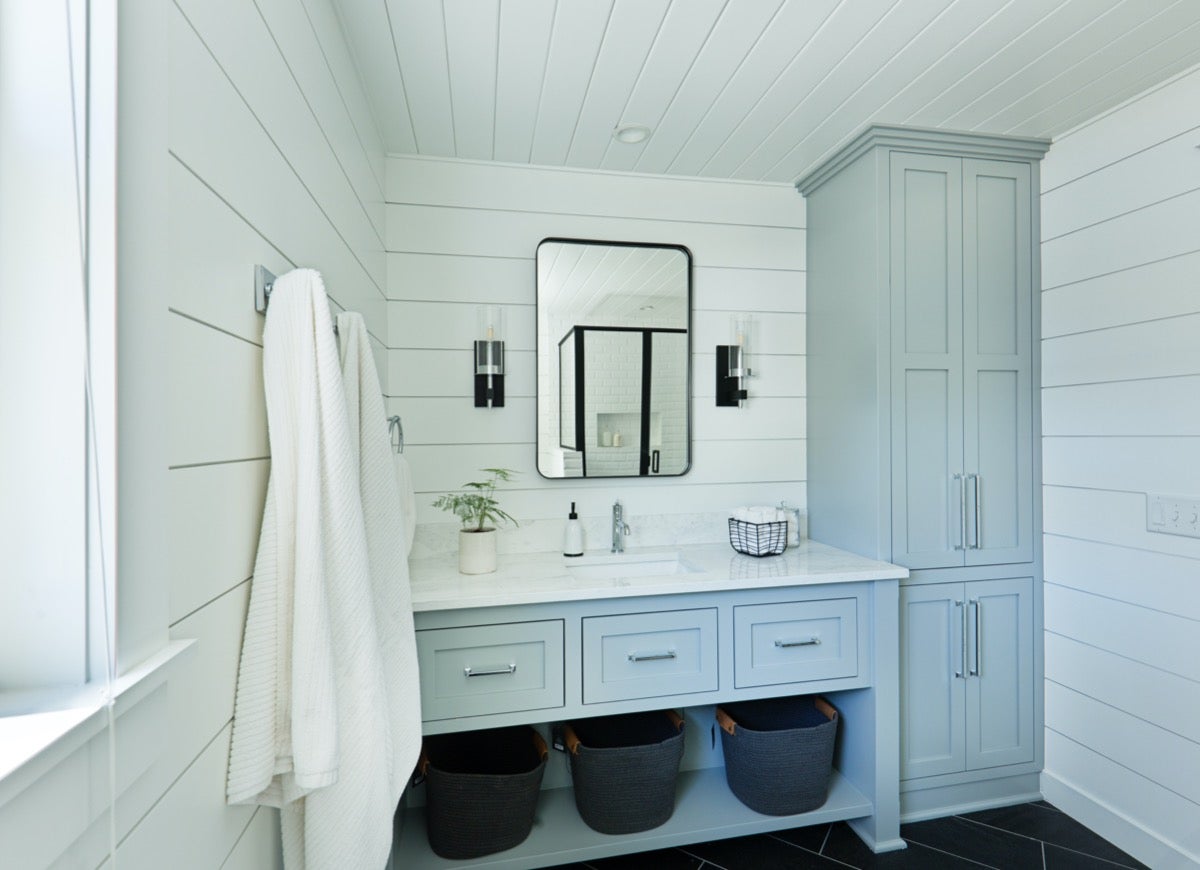
Bathroom cupboards and cabinets can provide added storage for toiletries, linens, medication, and more—particularly for those with small spaces. Many items that are typically kept in the bathroom, however, should actually be kept in a cool, dry environment that doesn’t experience dramatic fluctuations in temperature and humidity. Keeping these things in the bathroom could damage them, or even pose health risks. Read on for 13 things that should never be kept in the bathroom.
Towels
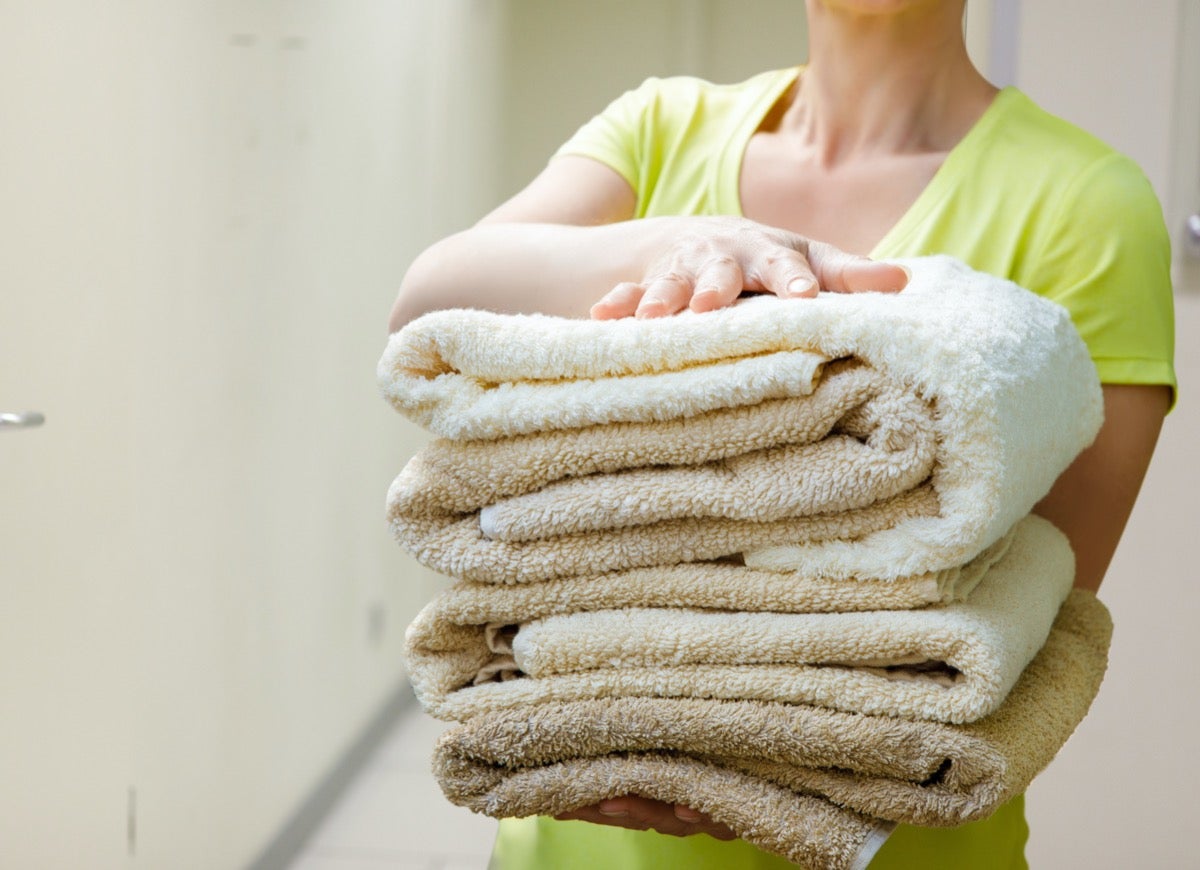
Many bathrooms include linen closets where people store their bath towels, but the humid environment isn’t the ideal place for them. If available, hallway linen closets are the best place to store towels because they won’t be exposed to high humidity levels, which can cause mildew to develop, resulting in a musty smell. The same rule applies to bathrobes and other linens.
Toothbrushes
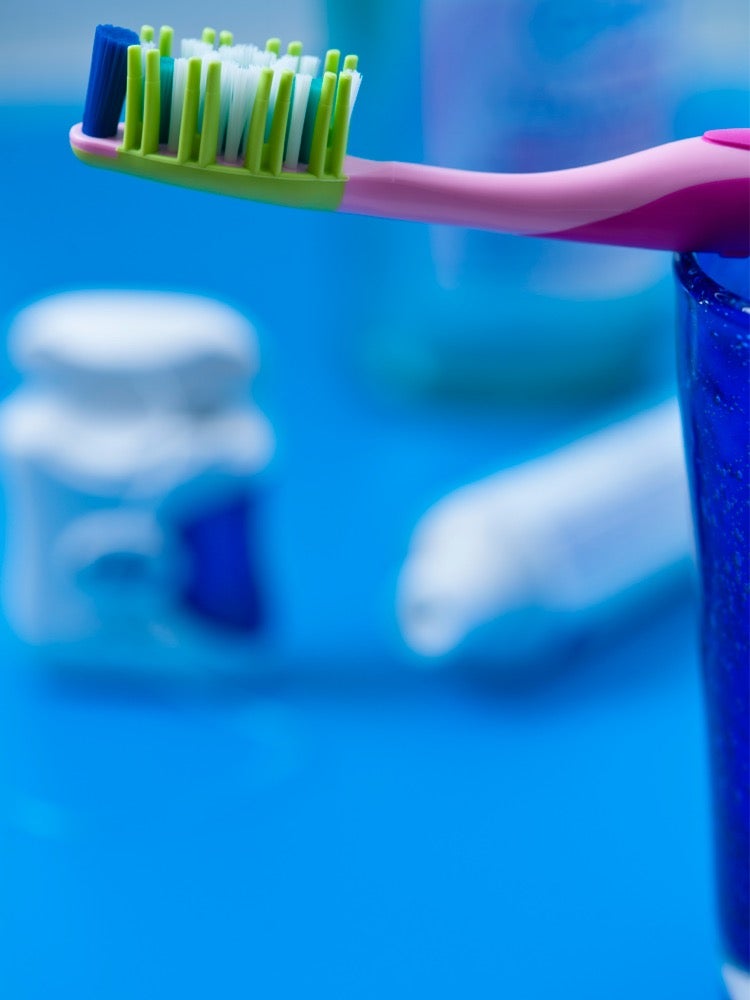
This one may seem a bit counterintuitive since the bathroom is where you brush your teeth, but storing your toothbrush holder on the bathroom counter could turn it into a breeding ground for bacteria. Every time you flush the toilet, bacteria are released into the air, and the humid conditions in a bathroom cause these bacteria to multiply quickly. If you can’t keep your toothbrush contained in a medicine cabinet, it’s best to store it outside the bathroom.
Photographs
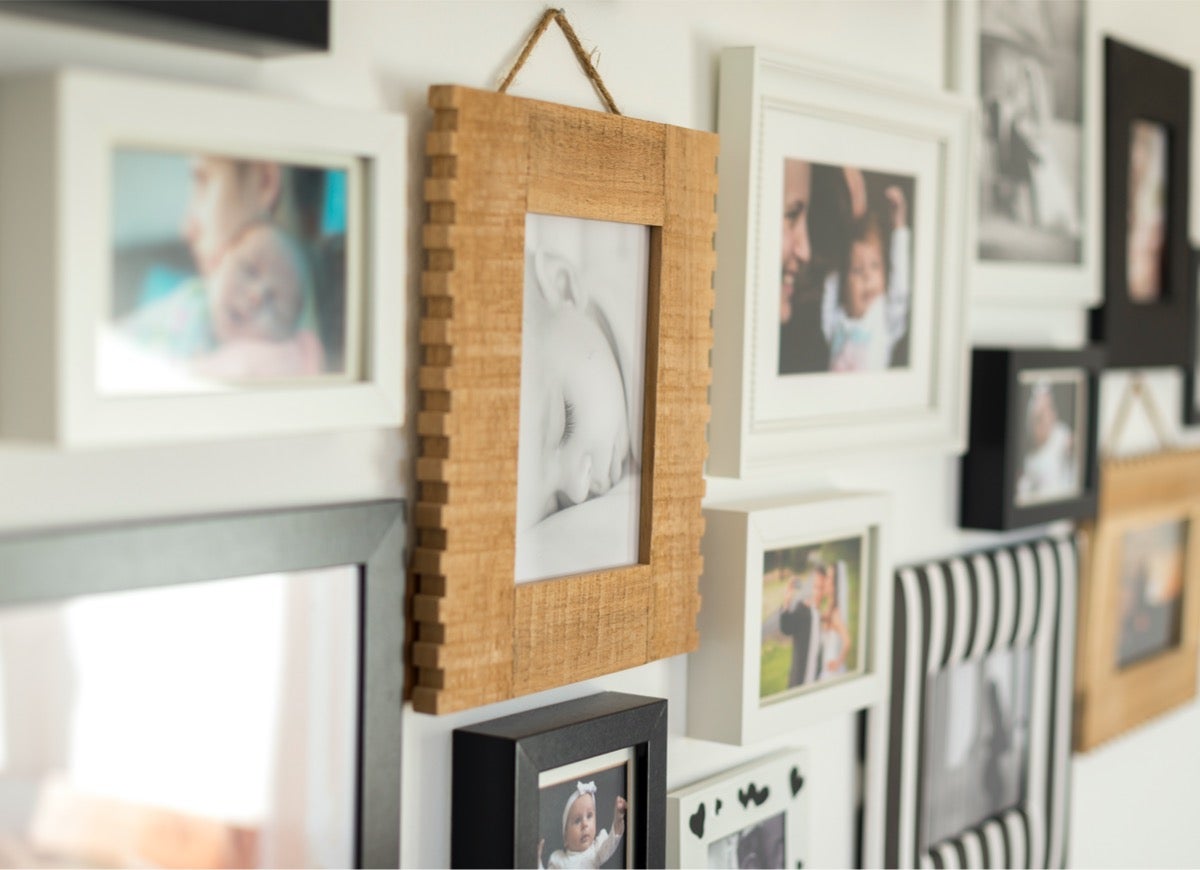
While the bathroom may seem like a great spot to display family photographs, they’re at risk of being damaged by humidity. Even if they’re framed well, moisture can make its way under the glass and spawn mold. To avoid ruining your treasured family photos, store them elsewhere or make copies to ensure you’ll be able to enjoy them for years to come.
Prescription Medication

While many of us store our prescription medication in the bathroom—it is called a medicine cabinet, after all—it’s not the ideal environment for pills and potions. Most prescription bottles stipulate that they should be stored in a cool, dry place, and the bathroom is likely the most humid place in your home. Instead, keep your prescription bottles in your bedroom in a spot where they’re out of reach of children. The same recommendation applies to vitamins as well.
Tampons
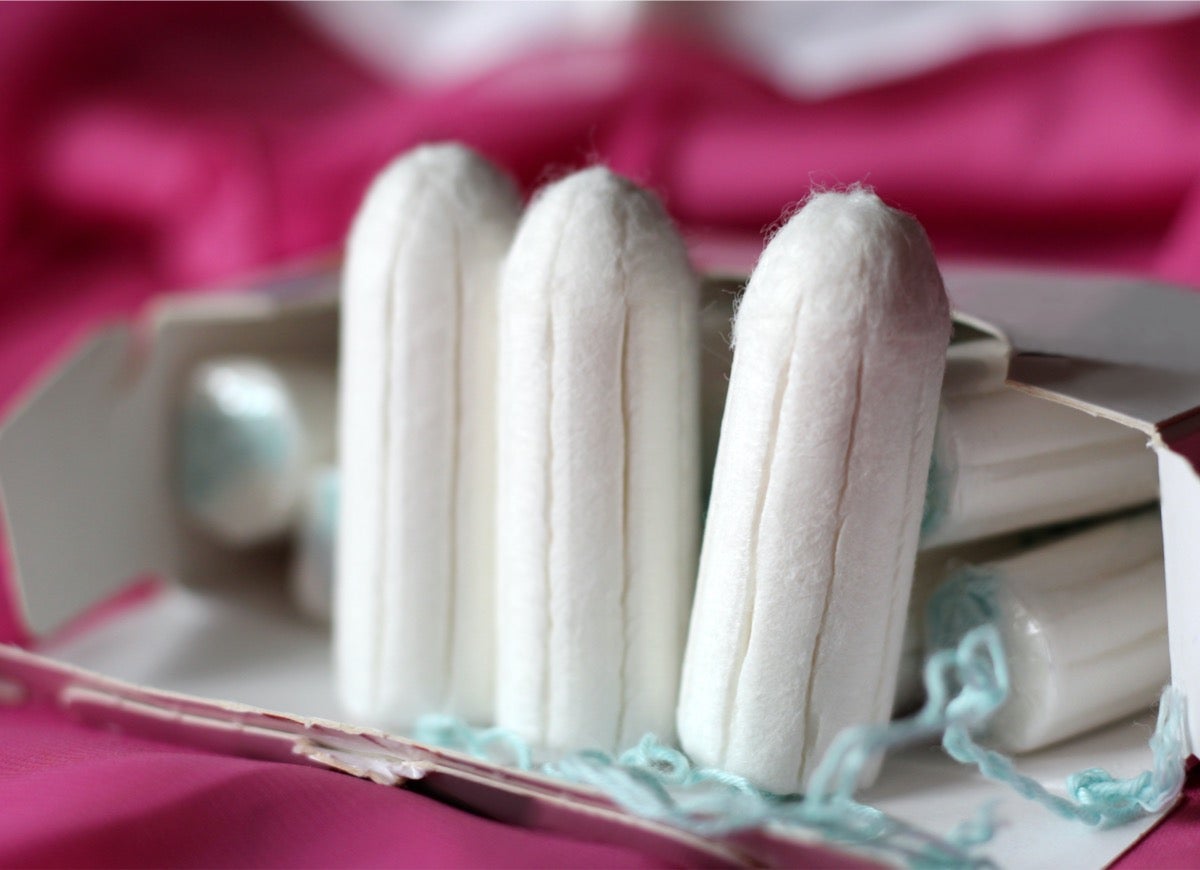
Storing tampons and other sanitary products in the bathroom is certainly convenient, but it’s not actually a great place for them. Most tampon manufacturers recommend storing their products in a cool, dry place because a damp environment can cause bacteria and mold to develop. Tampons stored in the bathroom for short periods of time are unlikely to be impacted, so don’t worry about keeping a small supply under the sink.
Electronics
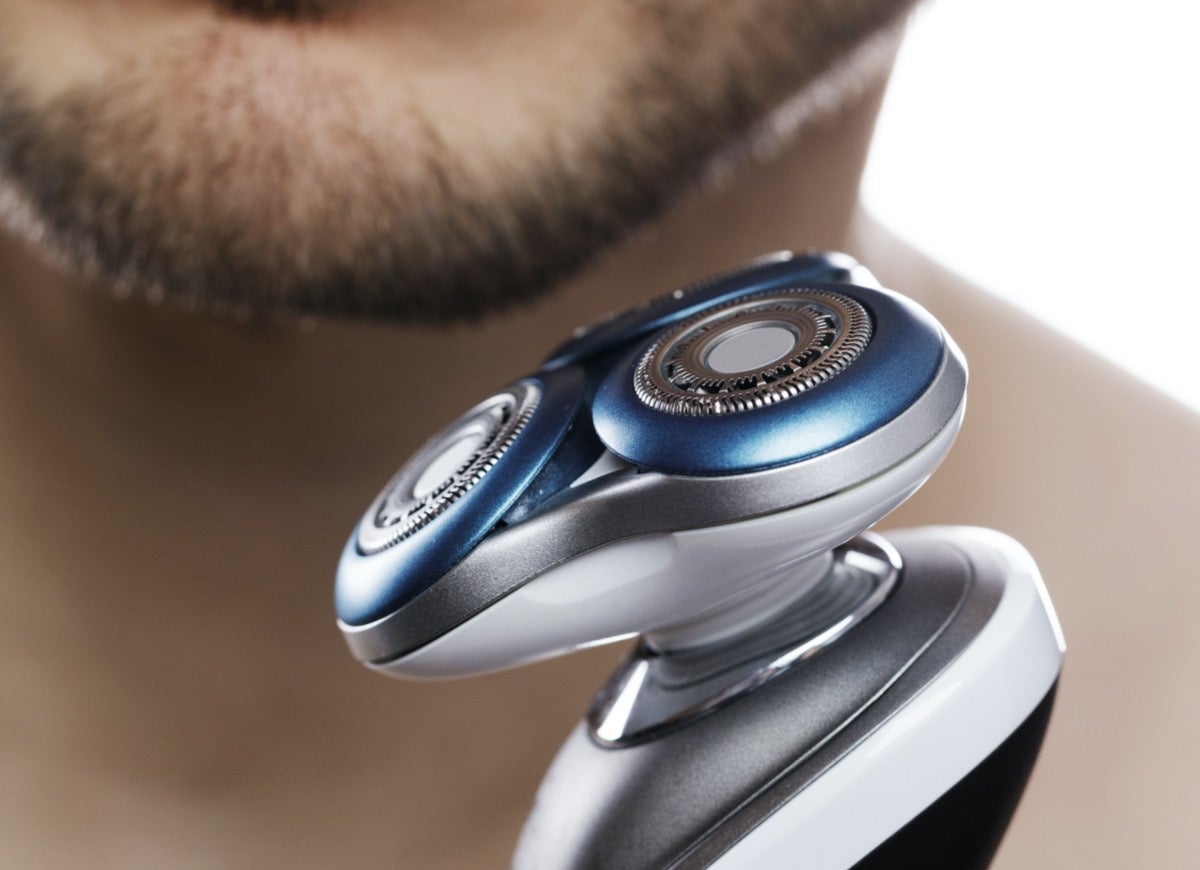
We all know that electronics and water don’t mix, so it’s best to keep small appliances elsewhere. Not only can it be potentially dangerous, but you could also damage your electronics by storing them in a damp environment. Most electronics have metal components that can rust or corrode if they’re exposed to high levels of humidity.
Painted Wood Furniture
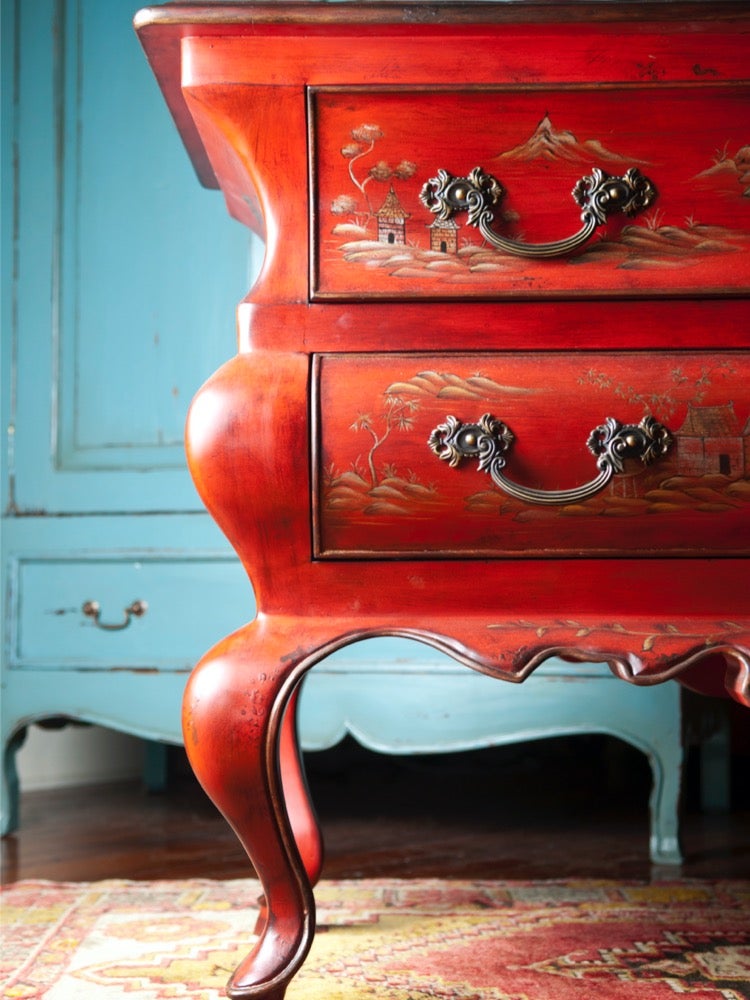
An antique wood chair or armoire can add some vintage charm to a bathroom, but painted wood furniture will potentially be damaged in a humid environment. When humidity levels fluctuate, wood expands and contracts, which will cause the paint coating to split, blister, and lift off. When decorating your bathroom, choose wood pieces that are stained rather than painted.
Makeup
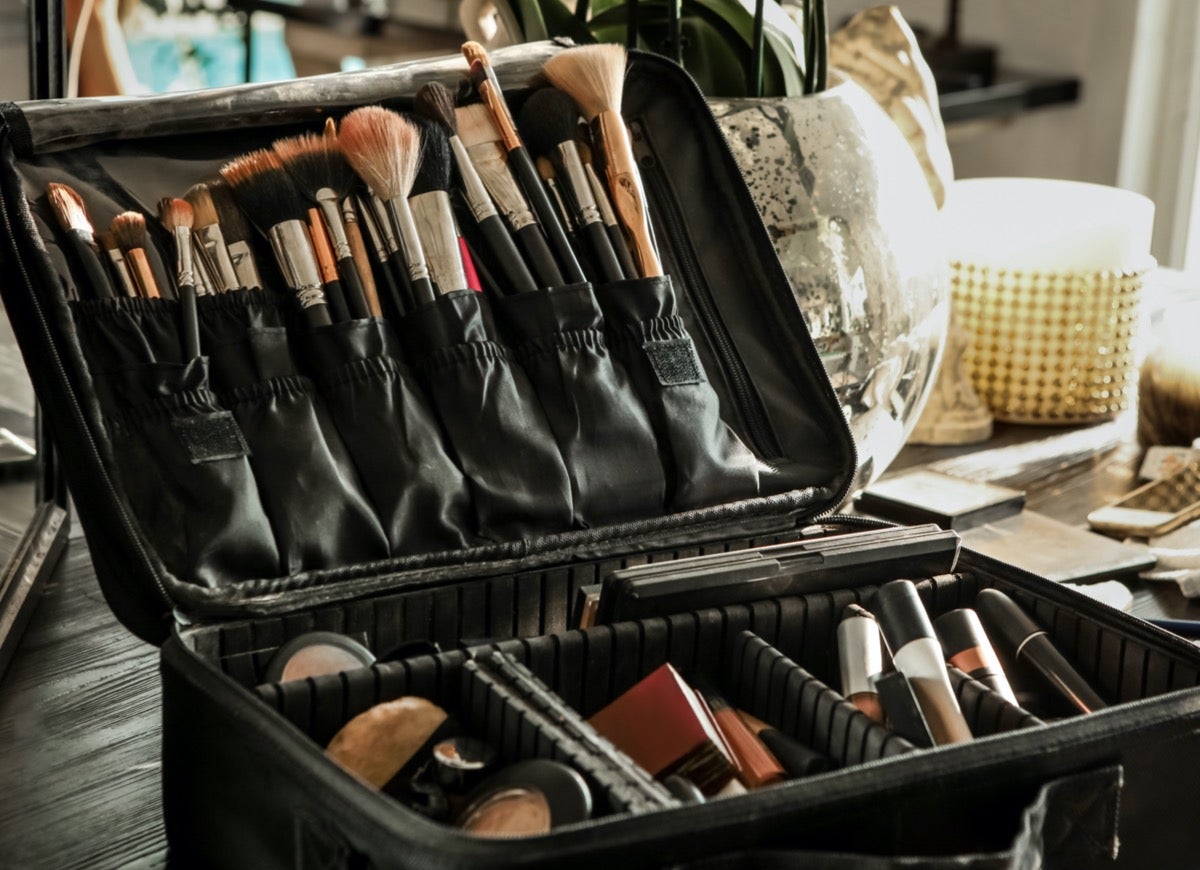
Cosmetic products are sensitive to both humidity and drastic temperature changes, and damp makeup sponges can quickly become moldy in a humid environment. Similarly, personal fragrances like perfume and cologne will quickly deteriorate when stored in areas that experience high humidity levels.
Valuable Art
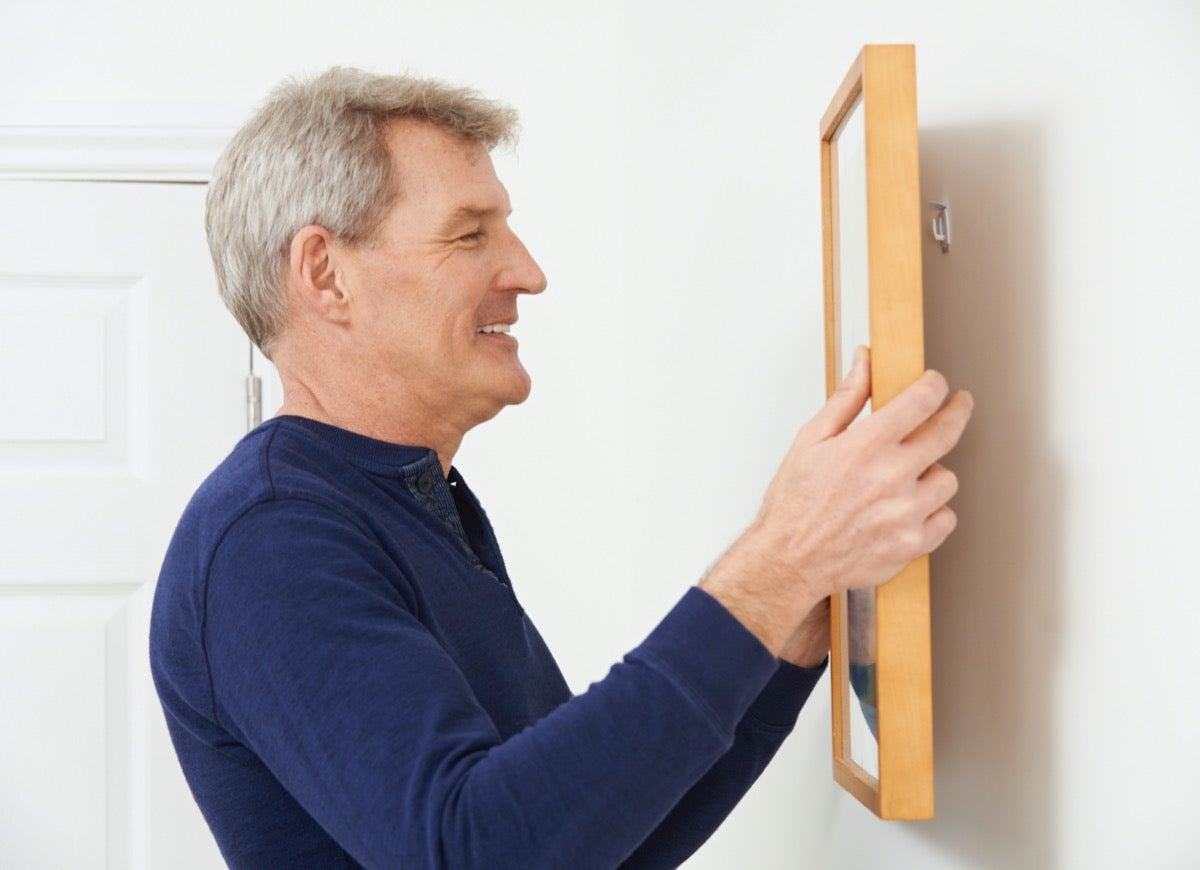
While wall art adds personality and visual interest to bathroom, you might want to keep your favorite pieces hung elsewhere. Even if they’re framed, fine art prints, paintings, and sketches can all be negatively impacted by fluctuations in humidity levels. While it’s fine to keep inexpensive reproduction prints in the bathroom as decorations, make sure rare or high-value pieces are hung in other parts of the house.
Books
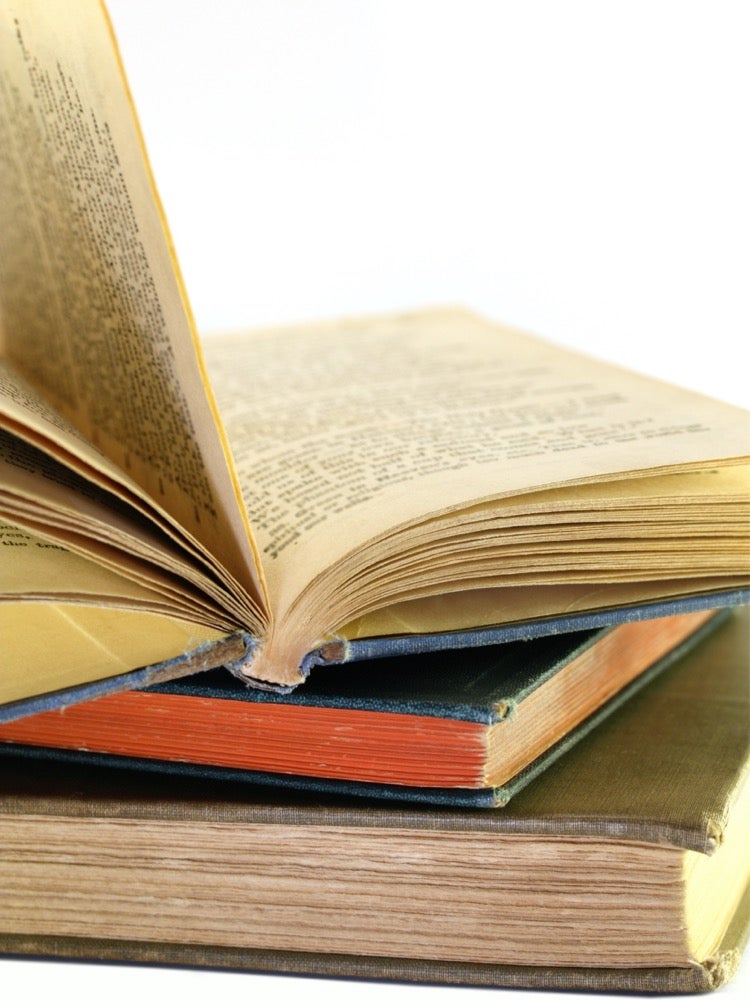
Many people leave books and magazines in the bathroom to provide casual reading material, but paper products absorb moisture readily, making them prone to developing mold when stored in a moist environment. Keep books on a shelf just outside the bathroom to avoid this issue while still offering an option for entertainment.
Nail Polish
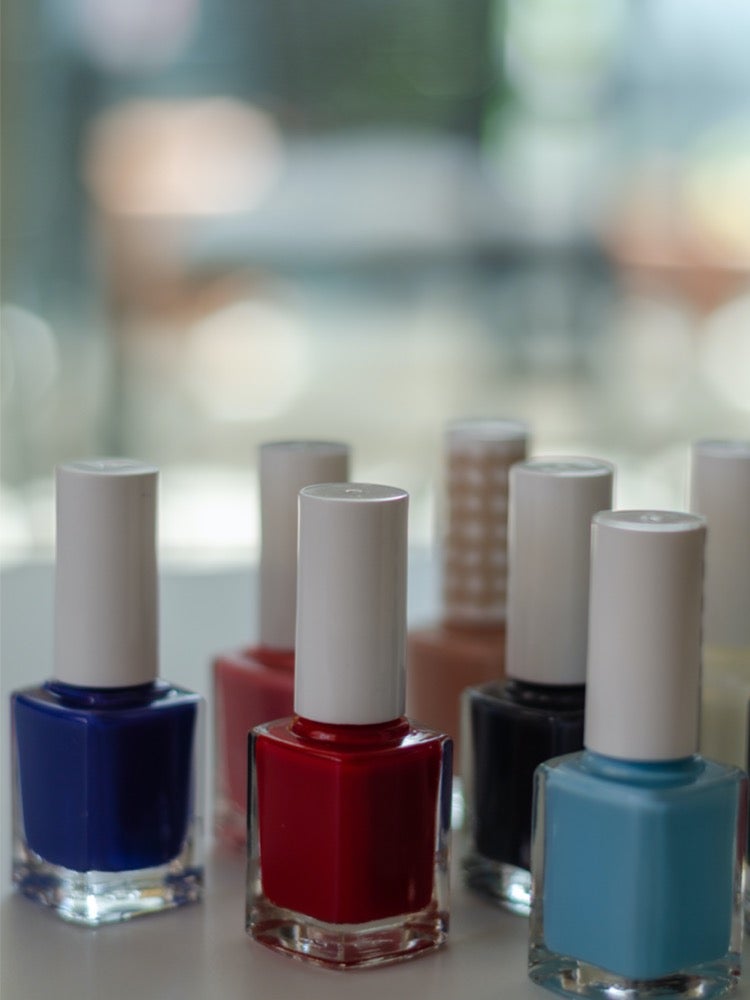
If properly cared for, a bottle of nail polish can last for years. When stored in a bathroom, however, nail polish is exposed to humidity and temperature swings, both of which cause it to separate and expire faster. Store nail polish in a cool, dark place—like a bedroom drawer or cabinet—for maximum longevity.
Jewelry

Jewelry doesn’t tolerate moist environments, especially if it’s made from sterling silver, which tarnishes quickly when exposed to high humidity levels. Rather than keeping your jewelry box on a bathroom counter or vanity, store it in your bedroom or closet to keep your rings, necklaces, bracelets, and earrings looking shiny and new.
Razors
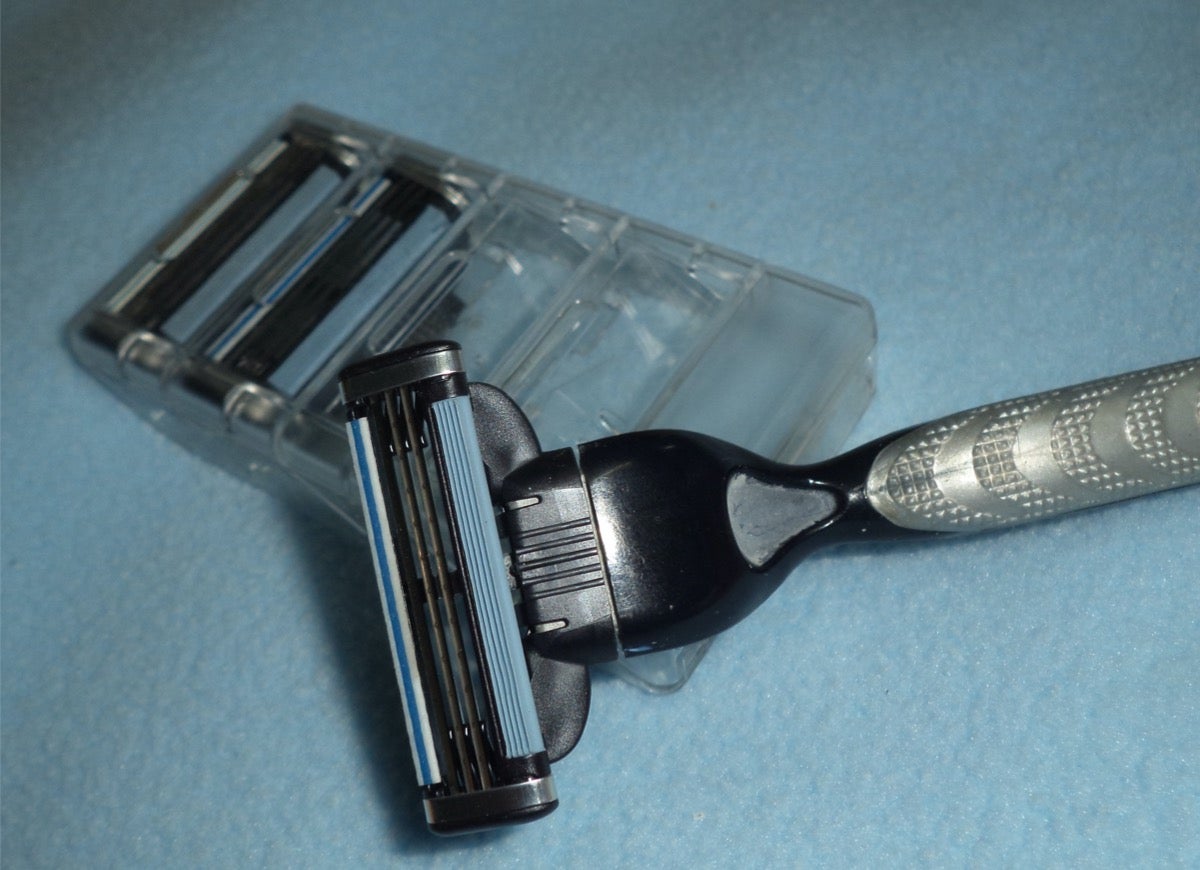
Razor blades are generally made from stainless steel, which is designed to resist rust and corrosion, but they can still be negatively impacted by high-moisture environments. While it’s OK to keep the razor you’re actively using in the shower or medicine cabinet, it’s best to store extra blades in a dry space outside the bathroom.

Everything You Need for a Lush and Healthy Lawn
Keeping your grass green and your plants thriving doesn’t just take a green thumb—it starts with the right tools and supplies.

